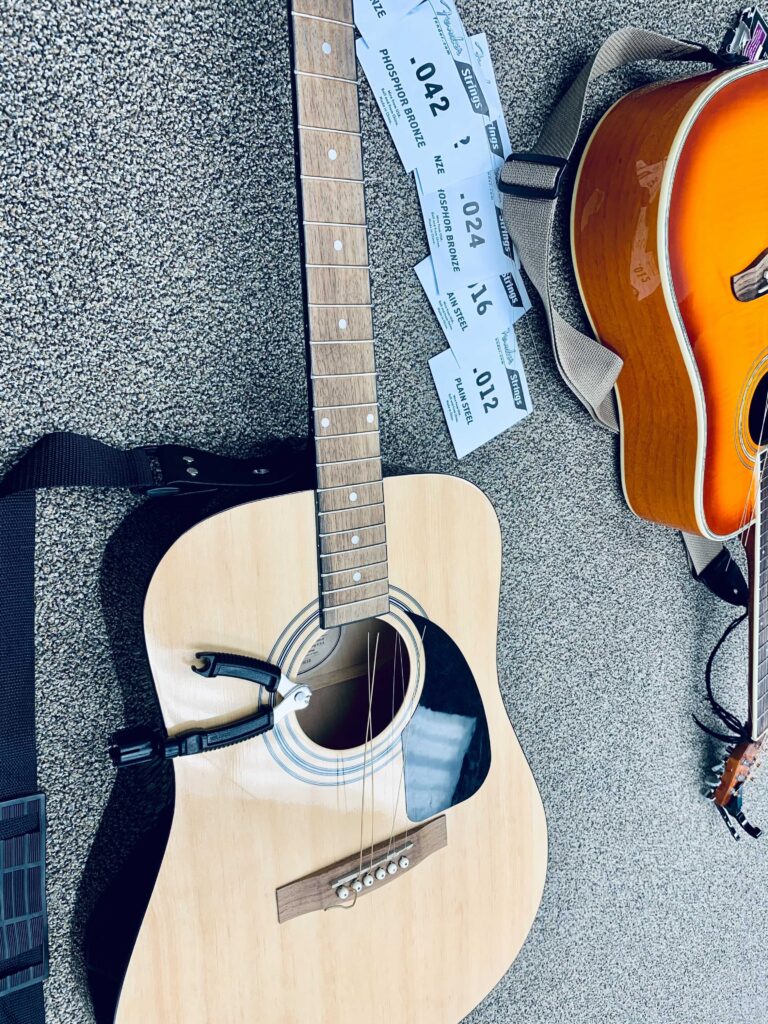
Hello everyone!
This week, we have had beautiful weather here in Springfield, Illinois! I hope you have had the opportunity to get outside and enjoy the sunshine. During my supervision this week, the team and I brought bean bags and sat outside in the parking lot! This was certainly an enjoyable experience.
Instrument Care
A few weeks ago, I helped my supervisor change the strings on the guitars in the office. Prior to this, I had only changed guitar strings once. We grabbed the guitars, the new strings, the tools, and pulled up a YouTube video to follow. After successfully changing the strings, the quality of sound improved significantly. For many of our other instruments, we clean them after each use. For instruments that we use less often, we store them in a safe place to keep them organized and protected.
Creating Materials
For many of my sessions, I used visuals for a variety of uses including to provide a sense of structure, provide opportunities for communication, and to include an additional form of sensory input. During my undergraduate practicum, I colored all my visuals. Thankfully, I now have access to a color-printer, cutting the time it takes to create visuals down significantly. The best part about making visuals is the lamination process. This is especially beneficial as it allows my visuals to last much long.
Paperwork
As a music therapist, I have quite a bit of paperwork I am required to fill out each day. After each session, I document how my clients did with their specific goals/objectives as well as write down important details that occurred. This documentation process can look different in different settings. In addition to this daily paperwork, I write up a Progress Report on each client for the treatment period. The paperwork of this profession can be the most challenging aspect for many music therapists.
Budgeting
A big part of music therapy is using what you have and using your materials creatively. When working as a contracting music therapist, you may need to request materials from the company. In order to do this, you need to establish a budget and find the most efficient way to use these funds. This is a skill that is extremely beneficial, whether you are in private practice, contracted, a full-time employee, or any other setting you may be in.
Practice, Practice, Practice
One of the biggest aspects of music therapy is knowing a wide range of music. As a music therapist, I may not know if my client enjoys Dolly Parton, Kanye West, or ACDC. Because of this, it is important to know as much music as possible. I am constantly learning new music each week. A music therapist can never know too much music!
There is so much that goes on behind the scenes in the music therapy career. Throughout my internship, I have had the opportunity to gain a better understanding of some of the skills required to be a successful music therapist beyond planning and implementing a session. During my last few weeks of internship, I hope to continue building these “behind the scene” skills needed to be successful.
Thanks for reading! Stay safe and healthy this week!
Cicely McCain


